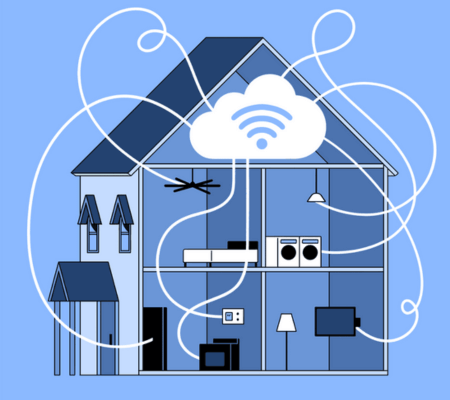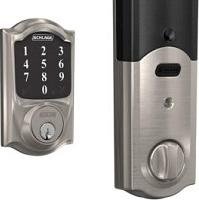The concept of a smart home has transitioned from a futuristic vision to an attainable reality, transforming how we manage our daily lives. At the heart of this transformation is the Smart Home Manager—a sophisticated, integrated platform that centralizes control over a myriad of smart devices and systems within the home. This article explores the capabilities, advantages, and future implications of the Smart Home Manager, demonstrating how it enhances household efficiency and convenience.
Table of Contents
ToggleUnderstanding the Smart Home Manager
A Smart Home Manager is a centralized system that orchestrates various smart home devices, including lighting, security systems, heating and cooling, appliances, and entertainment systems. It serves as the brain of the smart home, enabling seamless interaction and coordination among these devices.
Whether it is through a dedicated app, a touchscreen panel, or voice commands, the Smart Home Manager offers an intuitive interface for users to control and automate their home environment.
Key Features of a Smart Home Manager
Unified Control Interface: One of the primary features of a Smart Home Manager is its ability to provide a single point of control for all connected devices. Instead of juggling multiple apps or remotes, users can manage everything from one platform, simplifying the user experience significantly.
Automation and Scheduling: The Smart Home Manager excels in automating routine tasks. Users can set schedules for lighting, thermostats, and appliances, ensuring that the home operates efficiently without constant manual intervention. For example, lights can be programmed to turn on at sunset and off at bedtime, while the thermostat can adjust the temperature based on occupancy patterns.
Energy Management: With the integration of smart meters and energy-efficient devices, a Smart Home Manager can monitor and optimize energy consumption. It provides insights into energy usage patterns, suggesting ways to reduce consumption and lower utility bills. This feature is particularly beneficial for environmentally conscious homeowners looking to minimize their carbon footprint.
Enhanced Security: Security is a paramount concern for homeowners, and the Smart Home Manager addresses this with comprehensive monitoring and alert systems. It can integrate with smart locks, cameras, motion sensors, and alarm systems to provide real-time updates and notifications, enhancing the overall security of the home.
Voice and Remote Control: Modern Smart Home Managers are compatible with voice assistants like Amazon Alexa, Google Assistant, and Apple Siri. This integration allows for hands-free control of home devices, adding a layer of convenience. Moreover, remote control capabilities enable users to manage their home systems from anywhere in the world via a smartphone app.
Benefits of Using a Smart Home Manager
Increased Convenience: By centralizing control, the Smart Home Manager streamlines daily operations, making it easier for users to manage their home environment. The ability to automate tasks reduces the need for manual adjustments, saving time and effort.
Enhanced Comfort and Lifestyle: Automation features allow homeowners to create personalized settings that enhance comfort. For instance, setting a “Good Morning” routine could adjust the thermostat to a comfortable temperature, open the blinds, and start the coffee maker—all before you get out of bed.
Energy and Cost Savings: Smart Home Managers contribute to energy efficiency by optimizing the operation of home systems. Automated schedules and energy management features ensure that devices operate only when needed, reducing unnecessary energy consumption and lowering utility bills.
Improved Home Security: Integrated security features provide peace of mind by offering comprehensive monitoring and instant alerts in case of unusual activity. The ability to remotely monitor and control security systems ensures that homeowners can keep an eye on their property even when they are away.
Customizable and Scalable: Smart Home Managers are highly customizable, allowing users to tailor the system to their specific needs and preferences. Additionally, as new smart devices and technologies emerge, these systems are scalable, meaning they can be expanded and upgraded to include new functionalities.
The Future of Smart Home Management
The future of Smart Home Managers is poised for further advancements, driven by developments in artificial intelligence (AI) and the Internet of Things (IoT). AI will enable these systems to learn from user behavior and make predictive adjustments, creating an even more intuitive and responsive home environment. For instance, the Smart Home Manager might learn your preferred lighting settings and automatically adjust them based on the time of day and your activities.
Furthermore, as IoT continues to expand, the range of devices that can be integrated into a smart home ecosystem will grow, offering even more possibilities for automation and control. Enhanced connectivity through technologies like 5G will improve the reliability and responsiveness of smart home systems, ensuring seamless operation and interaction.
Conclusion
The Smart Home Manager is a cornerstone of modern smart home technology, offering unparalleled convenience, efficiency, and security. By centralizing control over various devices and systems, it simplifies daily routines and enhances the quality of life for homeowners.
As technology continues to advance, the capabilities of Smart Home Managers will only expand, making them an indispensable part of the future home. Whether it’s through improved energy management, enhanced security, or personalized automation, the Smart Home Manager is set to revolutionize how we live, making our homes smarter, more efficient, and more connected than ever before.










